|
Oral Health
Less than half of all 2 and 3-year olds in California (even fewer from low-income families) have never seen a dentist, yet that's what the American Academy of Pediatric Dentistry recommends. Check out our WIC Can Help page to learn more about promoting oral health for all families by referring them to low-cost or free services.
|

Make Your Workouts Body Positive
Dissatisfaction with the way your body looks or performs is often a motivating factor for exercise, but it can also lead to exercise burnout.
Here are some tips
for using exercise to celebrate your body's strength and abilities - if you enjoy it, you're more likely to continue doing it!
|
Shopping at Amazon?
Support CWA without spending anything extra by using
AmazonSmile!
|
Did someone share this with you? Sign up here to get the CWA Flash directly!
|
|
 |
|

Congress to Avoid Government Shutdown
Congressional leaders have reached a deal to keep the federal government funded through September. It includes some priorities for both Dems and Reps including: an additional $1.5 billion for border security and $15 billion for military funding, but not the $30 billion the President had requested. It also includes a $2 billion boost for the NIH rather than a reduction, additional funding to combat opioid abuse and for Pell Grants for summer school. EPA funding was barely reduced, a sharp contrast to what was expected. The House and Senate votes are expected later this week to avoid a government shutdown on Friday.
|

Health Care: Act Today!
A number of factors are making the possibility of another health care vote this week more of a reality. New changes to the replacement bill for the ACA, the American Health Care Act (ACHA), remain very troubling from a consumer standpoint. Proposed use of high risk pools to cover complex, pre-existing conditions, have historically not been funded adequately to cover costs, leaving patients without access to care. Additionally, patients with complex care can be responsible for un-affordable premiums. Other changes include charging for essential health benefits - the basic, core benefits of coverage - in the individual and small market exchanges. Uncertainty of cost sharing reductions, which threatens health coverage for millions of Americans, is creating complexity for California health plans. The approximate 15 health plans regulated by the state have been allowed to create two sets of rates to meet this week's deadline for 2018 proposals: one rate for the current ACA provisions and one based on estimates of proposed changes. All taken, these proposals are worse than the first ACHA proposals, with very real threats to health coverage and affordability. ACTION:
Call
866-426-2631 (English) 877-736-7831
(
Spanish) Tell Your Representatives: "The Amended AHCA
makes a bad bill worse
by allowing insurance companies to charge more for people with pre-existing conditions and gutting the requirement that insurance companies cover basic health care services such as maternity care, prescription drugs, mental health and dental benefits for children."
|
Farm2WIC: Connecting Farms & Families
Many WIC families would like the option of shopping at farmers' markets, and now they can use their WIC benefits at many California markets! CWA's Farm2WIC Campaign, kicked off at Annual Conference, is designed to promote the option of redeeming the monthly WIC Fruit and Vegetable Check (FVC, or cash value voucher (CVV) benefit) at authorized farmers' markets throughout California. ACTION: Check out the info and resources for markets and local agencies on our new
Farm2WIC webpage
- many items were featured in our Conference booth.
Find out here
if your local market accepts the FVC - and if they don't,
contact CWA
or State WIC (916-928-8513) to get started.
|
Get a Move On in May!
Join CWA in celebrating
Global Employee Health & Fitness Month
in May. It's a beautiful time of year to ramp up physical activity or make a fresh start in healthy eating or stress-reducing habits. If your agency is due to recertify as a Well WIC Worksite, as CWA is, or wants to become
certified
for the first time, commit to starting that process now. CWA staff and your local agency peers are here to help! ACTION: Check out our
WWW webpages
and/or contact
Margaret
or
Meghan
to get started and/or to join the May 24 conference call where WWW Coordinators collaborate.
|
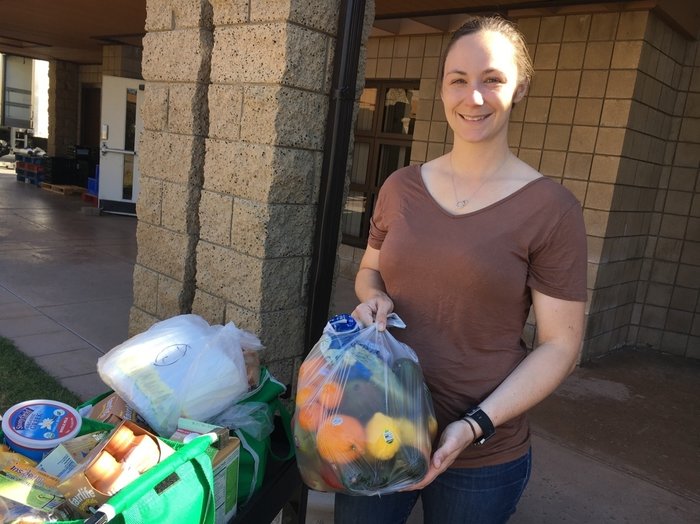
Military Families Struggle with Food Insecurity
In a recent survey called
Blue Star Families
,
7 percent of active-duty military families said they faced food insecurity over the past year - that equates to be more than 80,000 families nationwide. This is in line with a 2016 review from the Government Accountability Office, which found indications that some military families were in need - nearly 1 in 4 children at DOD schools are eligible for free meals, and about 23,000 active-duty service members rely on SNAP benefits, according to the 2013 Census Bureau. The GAO also
concluded
that the Department of Defense was not fully collecting or analyzing data on how many service members were in need of food assistance or enrolled in federal programs such as
SNAP
and
WIC
.
Here in California, WIC sites are located near or on most military bases to meet need, and data from CDPH WIC showed that in August 2016,
WIC checks were redeemed
at every active commissary in California. An enlisted service member
starts out earning
$1,449 per month - in a family with three children, that salary could make them eligible to receive SNAP and WIC benefits. Recognizing the need to support military families, Rep. Susan Davis, has introduced the
Military Prevention Hunger Act
,
which would exempt the military's basic housing allowance from being counted as income for purposes of determining some benefit eligibility.
|

Kids' Daily Routines Can Help Prevent Obesity
Preschoolers who don't have a set sleep routine are
more likely to be overweight
by the time they became tweens, according to a
new study
.
Parents of three-year-olds were surveyed about habits, including sleep and meal times, and researchers continued to follow the children - now teenagers. Children without regular bedtimes were almost twice as likely to be obese by age 11. An older
study
published in Pediatrics found that, in addition to regular bedtimes, two additional habits were also tied to a lower risk of obesity: regular evening meals and limited screen-viewing time.
|

Financial Worries May be Linked to Low Birth Weight
A new study suggests
that a mother who is financially stressed
during her pregnancy is more likely to have a baby with low birth weight. Researchers followed 138 pregnant women who filled out questionnaires to assess financial strain, depressive symptoms, pregnancy-specific distress, perceived stress, and general anxiety. After the babies were born, researchers were able to review medical records to compare birth weight against moms' questionnaire responses during pregnancy. This issue is important, as low-birth-weight babies often suffer from serious health problems and must spend time in the NICU. About eight percent of babies born in the United States are underweight at birth. R
esearchers note that this was a small study, and replicating the study in a larger group would be beneficial.
|
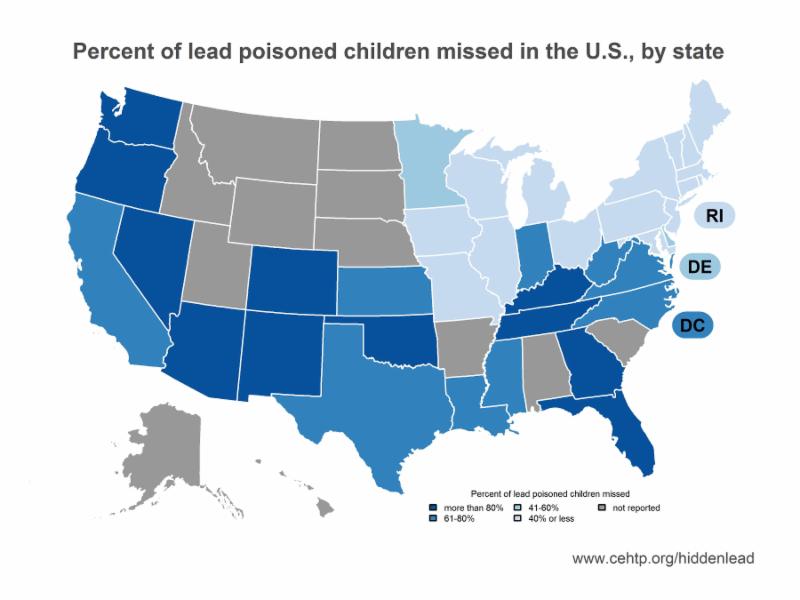
U.S. Children's Lead Exposure Underdiagnosed
A
PHI study
published in Pediatrics indicates that reporting may capture only 2 out of every 3 children poisoned by lead. "Assessing Child Lead Poisoning Case Ascertainment in the US, 1999-2010," from PHI's California Environmental Health Tracking Program, found states where more than 80% of lead-poisoned children remain unidentified. Researchers estimate that:
In 23 of 39 states where data were available, more than half of children with elevated blood lead levels (EBLL) were not identified; nationally, only 64% of children with EBLL were identified; in California, only 37% of children with EBLL were identified. Approximately 1.2 million cases of EBLL are believed to have occurred during this period.
|
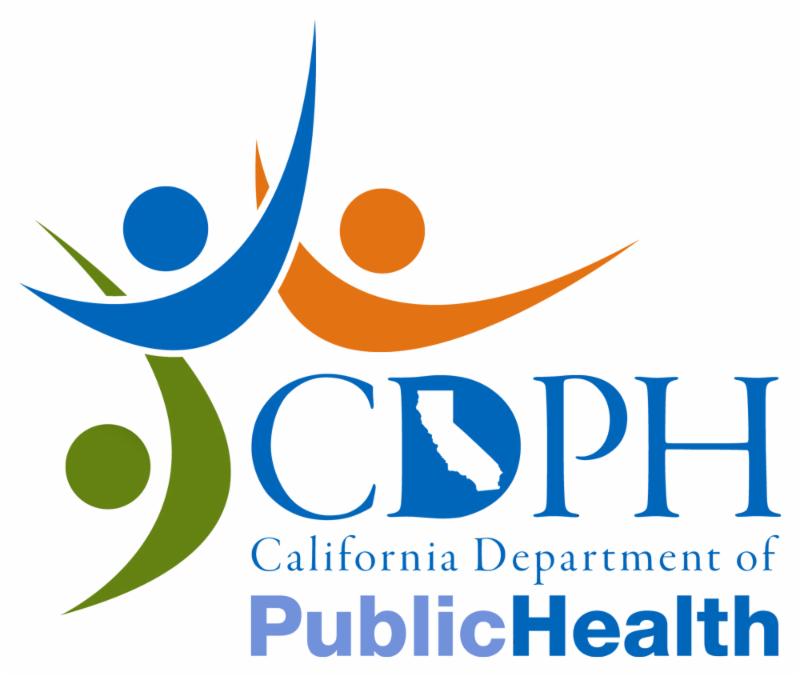
New CDPH Website Unveiled
California Department of Public Health has launched their new website - take
a tour at
www.cdph.ca.gov
, and be sure to visit the
WIC information
. Stakeholders, partners and the public can now more easily navigate the site and find helpful information. The new user-friendly design also gives CDPH an opportunity to better highlight the everyday work of public health and showcase the hundreds of ways CDPH promotes and protects the health of Californians and the millions of people who visit here each year.
W
ith any new launch, there may be a few initial kinks. If you find broken links, or have comments and suggestions, please let CDPH know by emailing
[email protected]
.
|
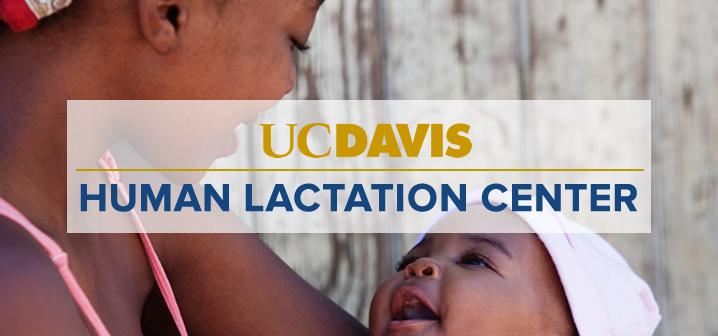
2017 UC Davis Human Lactation Center Conference
The UC Davis Human Lactation Center will be holding a conference, Understanding Healthy Feeding Transitions and Behavior in Infants and Young Children, on
October 4-6, 2017 in Davis, California. Speakers include Dr. Jane Heinig, Dr. Lorrene Ritchie, and Dr. Lynn Hana. For more information,
visit
|
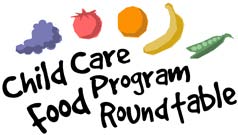
CA Child Care Food Package (CCFP) Roundtable
Attention child care and child nutrition experts! Planning is underway for this year's CCFP Roundtable Conference,
Nutrition at Its Peak
, to be held October 23-25 in Olympic Valley, CA. Application for presentations and speakers are being collected through May 15 with decisions by July 1. Info
here to apply to speak or for general conference information
.
|

Childhood Obesity Reduction Funding Opportunity
The USDA's National Institute of Food and Agriculture has announced $6.3 million in available funding for projects that focus on prevention and treatment of childhood obesity. The funding is part of the Agriculture and Food Research Initiative (AFRI) Childhood Obesity Prevention Challenge Area, which supports work on effective childhood obesity prevention. In FY 2017, this Challenge Area is only accepting applications for integrated research, education, and extension projects. The funding is available to colleges and universities, 1994 land-grant institutions, and Hispanic-serving institutions. Applications must be received by Wednesday, June 28.
|
|
|